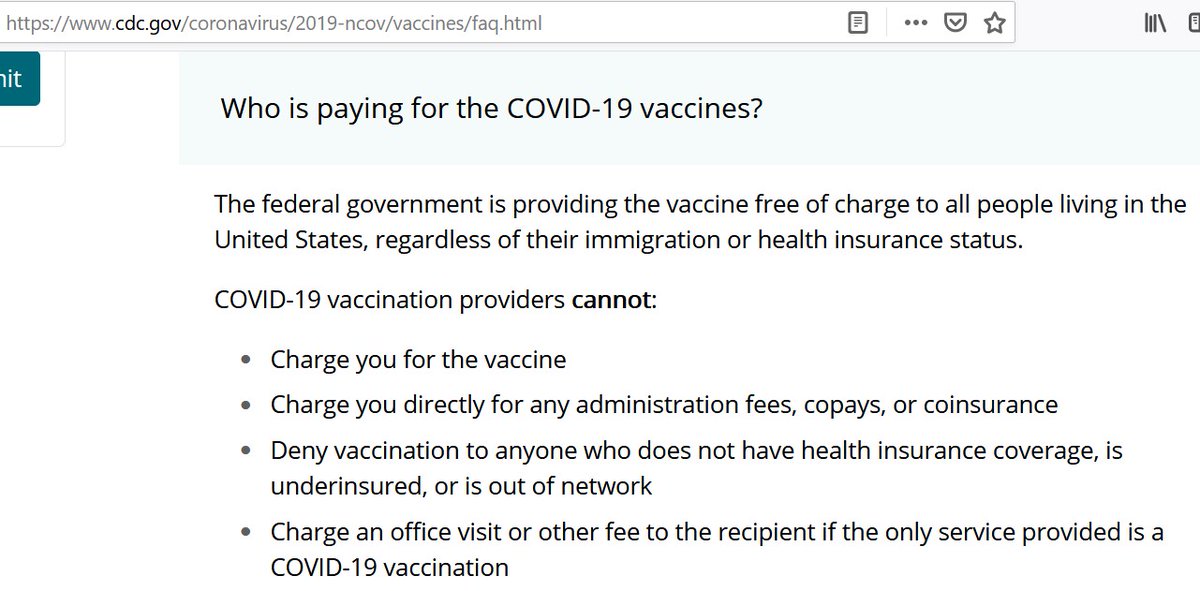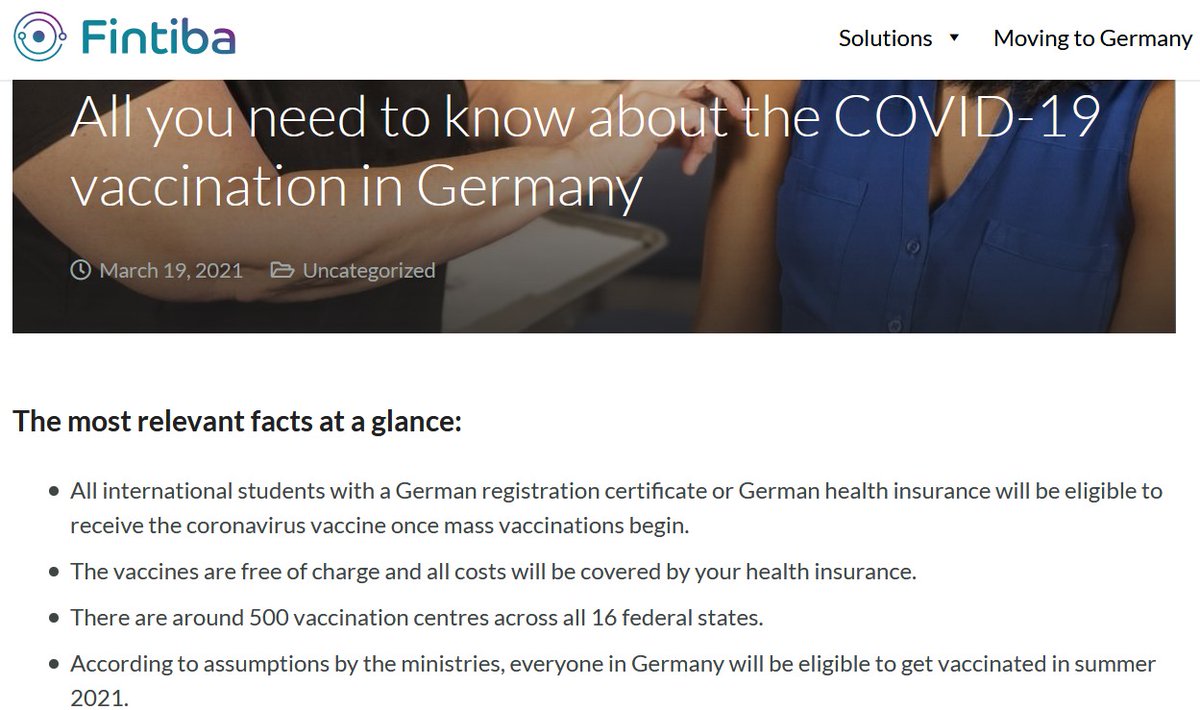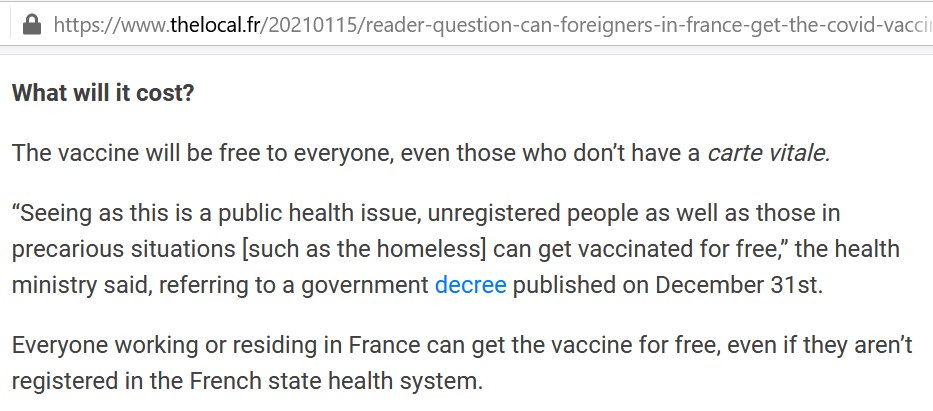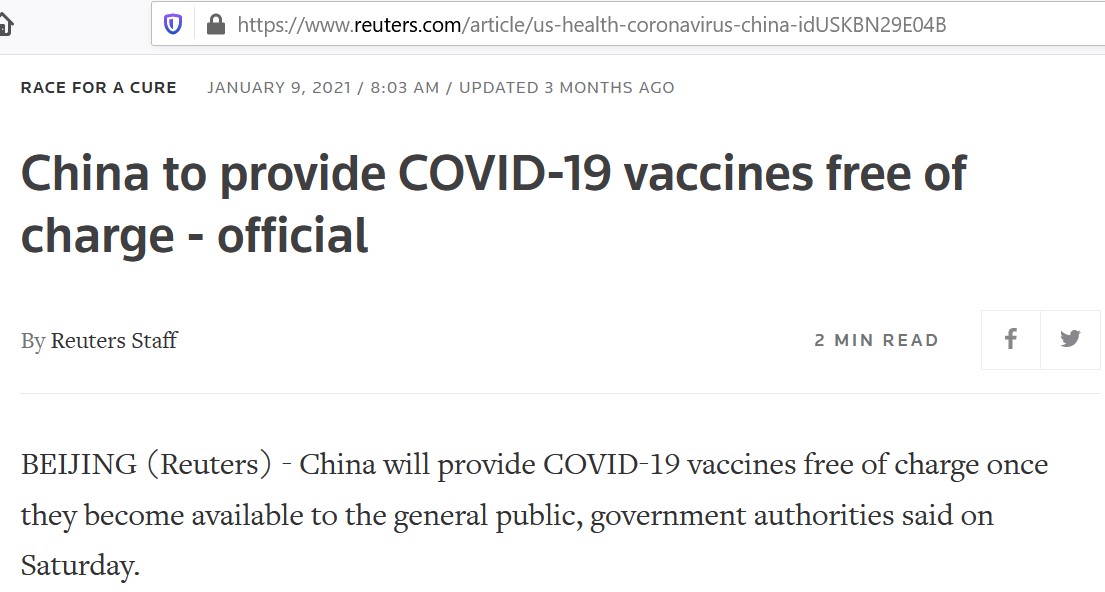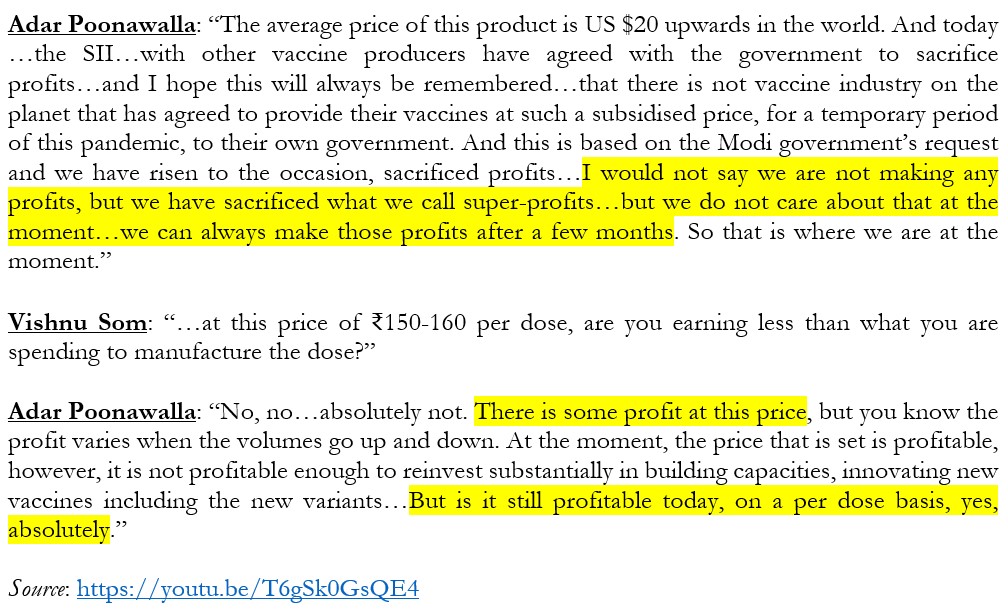A thread in response to different views expressed against my tweets and articles on Covid #vaccines. Many were abuses; I ignore them. I try to take the reasonable questions and try to answer them here. One question and one answer in each tweet below. Its a long thread, btw! 1/n
Q1) Why should India give vaccines free? Who gives vaccines free?
A1) Most countries are giving Covid vaccines free to their citizens. I shall give examples of some major countries, including United States, United Kingdom, China, Germany and France. See screen shots below. 2/n
A1) Most countries are giving Covid vaccines free to their citizens. I shall give examples of some major countries, including United States, United Kingdom, China, Germany and France. See screen shots below. 2/n
Q2) Why should India give vaccines free? There is nothing wrong in charging.
A2) There are two or three problems with this argument. First, there is already considerable vaccine hesitancy in India. Charging Rs 400-600/dose (*2 for 2 doses) will only reinforce hesitancy. 8/n
A2) There are two or three problems with this argument. First, there is already considerable vaccine hesitancy in India. Charging Rs 400-600/dose (*2 for 2 doses) will only reinforce hesitancy. 8/n
...A2...) Secondly, States are being asked to purchase vaccines from producers. Many States have, rightly so, decided to give vaccines free. This is a major financial burden for States. Vaccinating 100 crore people twice @ Rs 400/dose costs Rs 80,000 crore for all States. 9/n
...A2...) Thirdly, If States are unable to finance this and charge people for vaccines, most of them simply cannot afford it. An average Indian family with 3 adults will have to pay Rs 2400 for two doses, which is a major part of their monthly income. 10/n
...A2...) Vaccines are global public goods and it is the constitutional responsibility of enlightened welfare states to provide them free to everyone. Right to health flows directly from Article 21 of the Indian Constitution, and right to free vaccines is a sub-set of it. 11/n
Q3) Should not vaccine producers like Serum Institute make a profit? What is wrong with it?
A3) It is wrong to assume that SII makes a loss on its vaccines at Rs 150/dose. Adar Poonawallah himself said in an NDTV interview that SII currently makes a normal profit per dose. 12/n
A3) It is wrong to assume that SII makes a loss on its vaccines at Rs 150/dose. Adar Poonawallah himself said in an NDTV interview that SII currently makes a normal profit per dose. 12/n
...A3...) See transcript of the Poonawallah interview below. He said that while they make normal profits, they are looking to make "super profits" in the coming months. Thus, he said in another ANI interview, that his preferred price for Covishield is Rs 1000/dose. 13/n
...A3...) Today& #39;s announcement by the SII to set price at Rs 400-600/dose is the first phase of price rise. The next phase will see another price rise taking prices closer to Rs 1000/dose. Central government can intervene & control prices, but it is not doing so to aid SII. 14/n
Q4) Is not the centre& #39;s 50% quota of vaccines free for all?
A4) Yes, but only for the first 30 crore coverage out of the 130 crore population, which is essentially those >45 years of age. For the rest, constituting the bulk of the population, vaccination is now charged for. 15/n
A4) Yes, but only for the first 30 crore coverage out of the 130 crore population, which is essentially those >45 years of age. For the rest, constituting the bulk of the population, vaccination is now charged for. 15/n
Q5) Is not the present setting of prices at Rs 150/dose for centre, Rs 400/dose for States and Rs 600/dose for private hospitals a normal market strategy of a private firm?
A5) Yes, but not for a firm that produces a global public good in the midst of a pandemic. 16/n
A5) Yes, but not for a firm that produces a global public good in the midst of a pandemic. 16/n
...A5...) The problem is that the centre has managed to insulate itself from any price rise and the attendant budget burdens, while it has passed on a higher budget burden to the States. It is ethically unfair in a federal democracy with shared developmental goals. 17/n
...A5...) States are already bearing much of the tasks on the health front to address the pandemic. States cannot bear more burdens. Rs 80,000 crore can be easily allocated by the centre for the vaccines, which can then be given free to all. What is the PM Cares Fund for? 18/n
...A5...) Finally, the three-price system as today& #39;s is administratively difficult to manage. It can lead to chaos with various States & private hospitals vying for a fixed quantity of vaccines. Rationing will lead to avoidable competition and wastage of scarce resources. 19/n
In sum, the best and most efficient strategy would have been a free supply of vaccines by the centre to States, and the centre paying a regulated price (covering normal profits) to vaccine producers. With universal access, this was the most equitable policy to follow. n/n
@threadreaderapp please unroll

 Read on Twitter
Read on Twitter